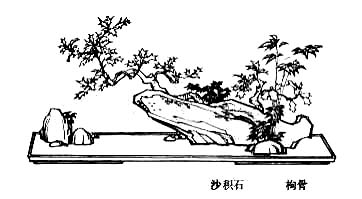Lun Yu 
 – Les Entretiens de Confucius
– Les Entretiens de Confucius
Le Maître échange propos, anecdotes, brèves paraboles et maximes avec ses disciples. Tr. Couvreur (fr), Legge (en) et Lau (en).
Lunyu XVI. 5. (438)
Confucius dit : « Il y a trois plaisirs utiles, et trois nuisibles. Aimer les rites et la musique bien réglés, aimer à dire le bien qu'on a observé dans les autres, à se lier d'amitié avec beaucoup d'hommes sages, ces trois choses sont utiles. Aimer à donner libre cours à ses convoitises à perdre son temps et à courir çà et là, à faire bombance, ces trois plaisirs sont nuisibles. »
Couvreur XVI.5.
Three sources of enjoyment advantageous, and three injurious.
Confucius said, "There are three things men find enjoyment in which are advantageous, and three things they find enjoyment in which are injurious. To find enjoyment in the discriminating study of ceremonies and music; to find enjoyment in speaking of the goodness of others; to find enjoyment in having many worthy friends:– these are advantageous. To find enjoyment in extravagant pleasures; to find enjoyment in idleness and sauntering; to find enjoyment in the pleasures of feasting:– these are injurious."
Legge XVI.5.
Confucius said, 'He stands to benefit-who takes pleasure in three kinds of things. Equally, he stands to lose who takes pleasure in three other kinds of things. To take pleasure in the correct regulation of the rites and music, in singing the praises of other men's goodness and in having a large number of excellent men as friends is to benefit. To take pleasure in showing off, in a dissolute life and in food and drink is to lose.'
Lau [16:5]
礼や楽をきちんと行う楽しみ、人の長所をたたえる楽しみ、良き友をを増やす楽しみ、これは有益である。
おごりたかぶる楽しみ、遊びほうける楽しみ、酒食にふける楽しみ、これは有害である。

Les Entretiens de Confucius – Lun Yu XVI. 5. (438) – Chinois off/on – Français/English
Alias the Lunyu, the Lun Yü, the Analects, les Entretiens du maître avec ses disciples.
Le Canon des Poèmes, Les Entretiens, La Grande Étude, Le Juste Milieu, Les Trois Caractères, Le Livre des Mutations, De la Voie et la Vertu, 300 poèmes Tang, L'Art de la guerre, Trente-six stratagèmes
Bienvenue, aide, notes, introduction, table.
Index – Contact – Haut de page























